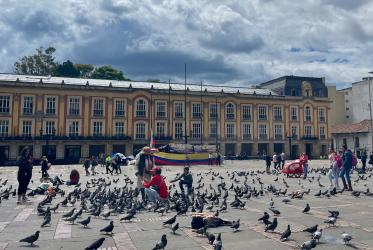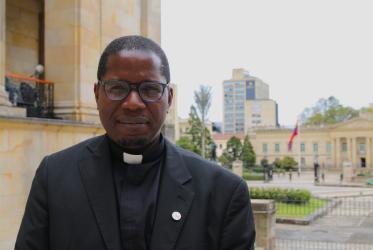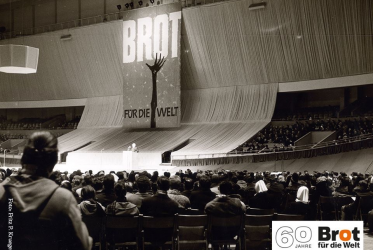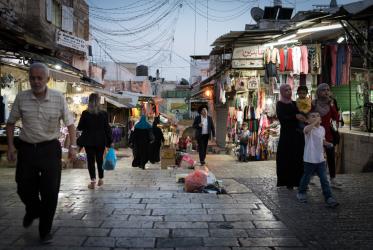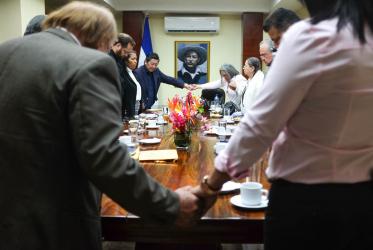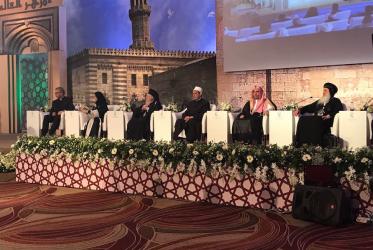Displaying 1 - 20 of 32
Paving the way for ecumenical studies, learning English in Bossey
24 September 2018
WCC delegation visits Conference of Latin American Bishops
08 February 2018
Trying to do good for the world
18 December 2017
In Argentina, stirring journey for human rights continues
01 September 2017


